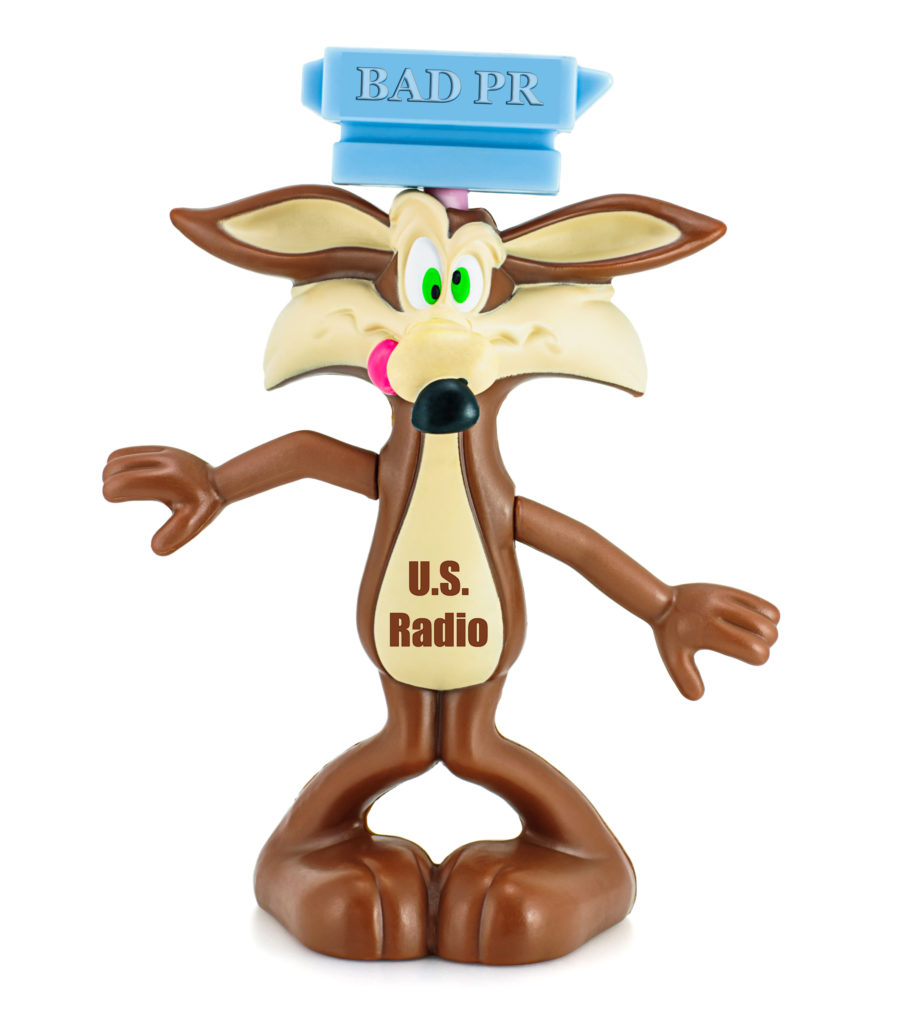
Yesterday, we talked about politics and radio – strange bedfellows, indeed.
Today’s post starts with a Senator from Ohio, Sherrod Brown (pictured below right) and an odd mashup with radio. Aside from considering a run for President this year (he wisely decided against it), Brown made some headlines of his own last week. It seems that in the middle of only the third impeachment hearing in the history of this 240 year-old republic, the Senator from the Buckeye State felt it was important enough to write a letter to Bob Pittman.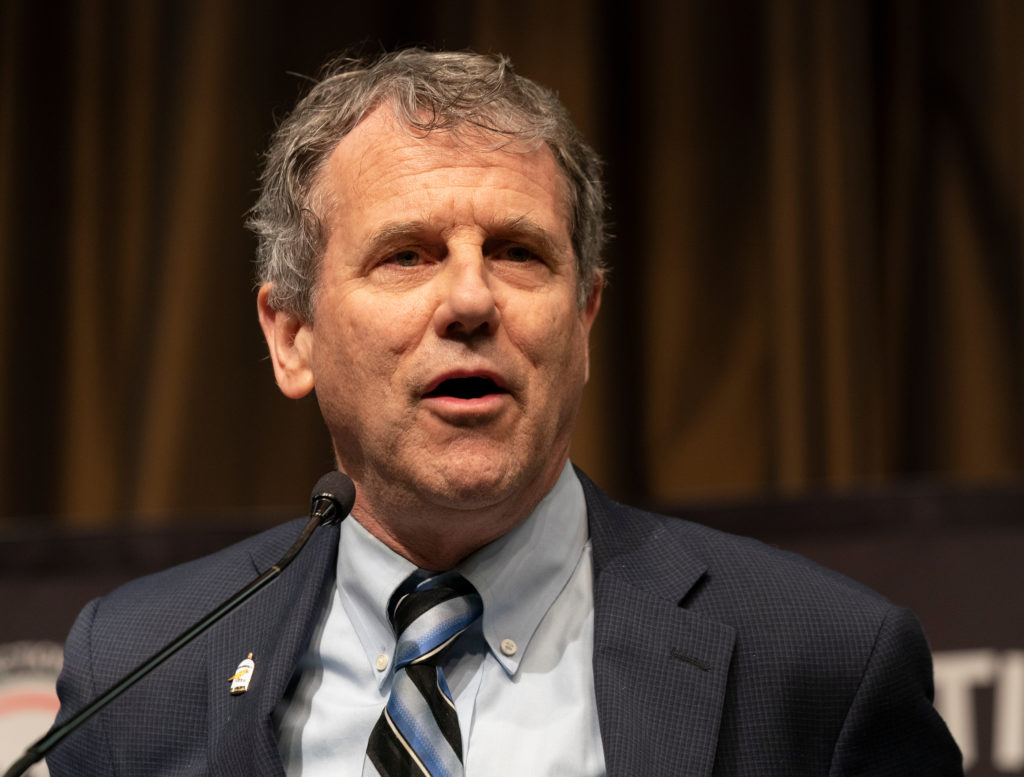
Many of you no doubt saw his missive in the industry trades. Pointing directly to the mass layoffs in radio, Brown asked iHeartMedia’s CEO to explain the downsizing of so many stations – especially in his home state. Among other concerns – including executive compensation and bonuses – Brown asked Pittman to respond to these questions by February 14th. I’ve abbreviated them below:
- How many workers were fired (and how many from Ohio)?
- What type of severance and health care benefits did they receive and for how long?
- Will these employees be given priority for open positioning in the future?
- Will these terminated employees receive training to help them qualify for new jobs?
Good questions all.
But the strange part is why a U.S. Senator embroiled in one of the most controversial events in American history is even bothering to swoop in and ask questions about what is going on in broadcast radio.
Sherrod Brown is not the only one, nor is iHeartMedia the only company involved in layoffs these past few months. For an industry that has trouble agreeing on what belongs in the dashboard and how Nielsen should conduct the ratings, the radio industry has sadly come together on the issue of downsizing, terminations, layoffs, reductions in force, “dislocations,” and whatever else you call them.
And the world is taking notice.
Its an understatement, of course, but this is a challenging time for radio, perhaps the most trying since the medium became part of the American culture. Capitalism isn’t always pretty, and we’re watching its scary side at work here, as companies duke it out to survive in this roiling, highly charged environment.
Every industry – including tech – has been on the hot seat, balancing growth and sustainability, trying to figure out how to carve out a meaningful future, while maintaining quarter by quarter performance that sates investors and stakeholders.
In the commercial radio world, the pain is coursing through the hallways, conference rooms, cubicles, and jock lounges. There are well more than 1,000 people and their families impacted by this latest round of cuts.
There have been tough times in broadcast radio here in the U.S. before, but now it’s experiencing all sorts of blowback – just the type of bad PR it doesn’t need.
Especially now.
For an industry that rightfully prides itself on its good deeds during times of disaster – national and otherwise – as well as year-round fundraising and charitable pursuits, this negative coverage of broadcast radio at the beginning of a tenuous new year isn’t just unfortunate – it’s disturbing and troublesome.
If you search “radio layoffs” under Google News, you can now see the torrent of results that pop up – all 150,000+ of them.
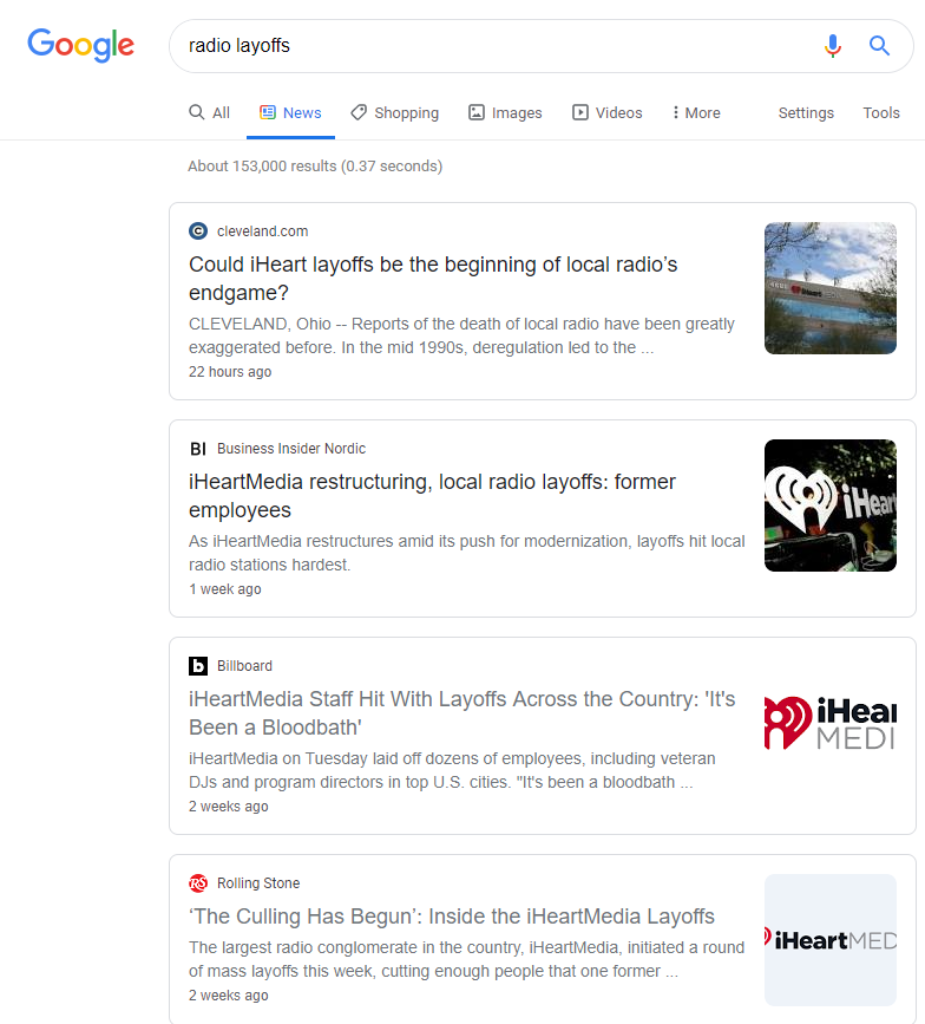
This top group of search results all involve iHeart, but the more you scroll, the more stories you see – from Rolling Stone, the Washington Post, and Robert Feder’s well-read blog, “Robservations,” has become must-read material for many Chicagoans in and outside the business on the one hand, to stories in smaller town publications like the Arkansas Business Journal, the Post and Courier (Charleston, SC), and the Daily Voice (White Plains, NY).
Then there was this blaring headline in Syracuse.com, an online news site published by the Post-Standard:
Does iHeartMedia have more radio stations than
local DJs in Syracuse now?
Ouch.
And the main message of these stories has been consistent, despite the widely varying markets and communities:
Most lament the loss of air personalities, many of whom have commented or whose social media feeds have been clogged with outraged, aghast fans. Interestingly, most of these DJs, shows, and hosts haven’t expressed anger toward their former employers. In fact, many feel bad their voice is no longer being heard, often addressing the outpouring of emotion from fans.
Many also are partial commentaries on the state of the commercial radio business in the U.S. – or in their communities. Some wonder why some of the industry’s biggest companies are in the forefront of these layoffs. Others question the validity of claims like “live & local” in the face of these cutbacks.
Even the story of those six Des Moines DJs who got their jobs back after a pressure campaign from advertisers and listeners got coverage – by Rolling Stone no less – was no salve on the wounds. In fact, it only served to reinforce perceptions that big, bad companies are inexplicably and arbitrarily firing some of their most popular people.
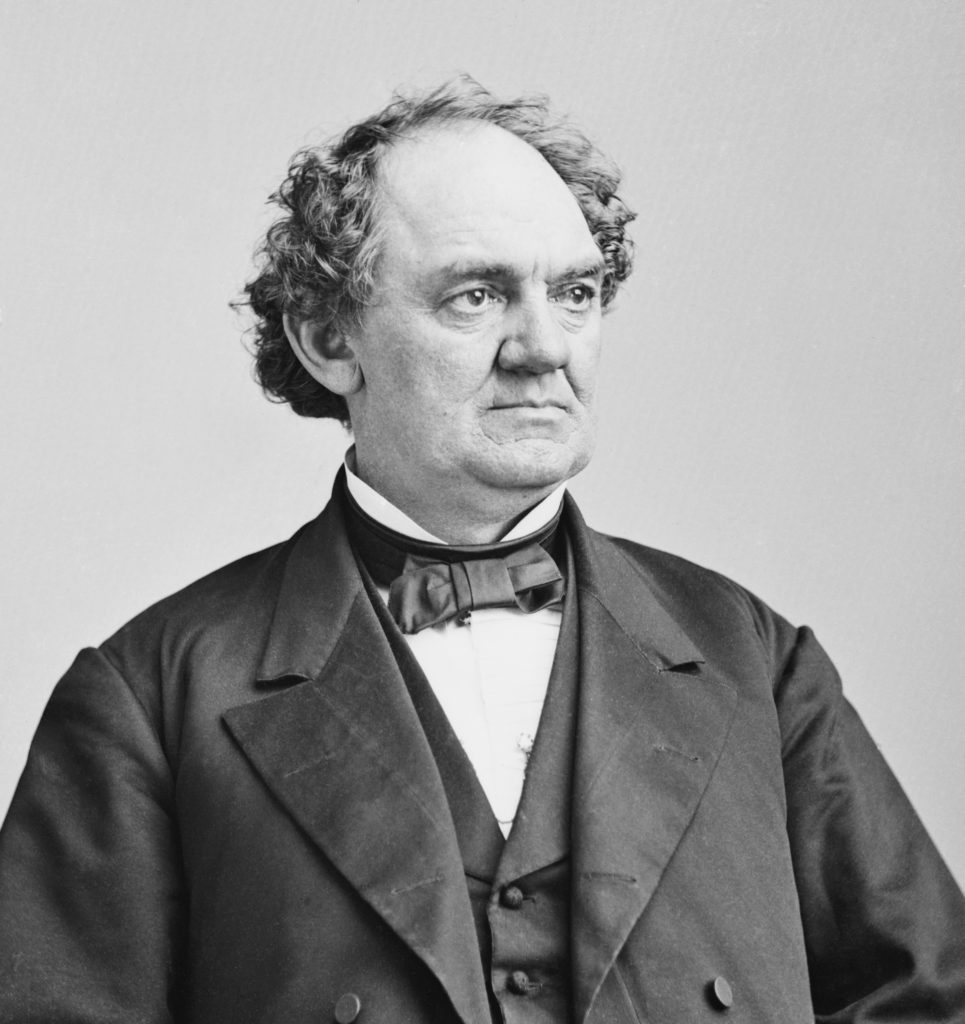 P.T. Barnum (pictured right), one of the greatest showmen of all time, once observed, “There’s no such thing as bad publicity.” But that’s a myth. These days, bad news travels faster than ever before, thanks to the power, efficiency, and economy of the Internet in general, and social media specifically.
P.T. Barnum (pictured right), one of the greatest showmen of all time, once observed, “There’s no such thing as bad publicity.” But that’s a myth. These days, bad news travels faster than ever before, thanks to the power, efficiency, and economy of the Internet in general, and social media specifically.
There’s no question radio – and all traditional media – have been under the gun financially. All the hyperbole in the world from the industry’s captains doesn’t mitigate the damage caused by the bad press that has accompanied this newest round of firings. Radio wasn’t exactly being treated as a media darling before this newest wave of axings went into effect and newspapers have historically enjoyed dancing on radio’s grave – a key competitor for local revenue.
And while the companies in the forefront of these layoffs were all hoping to achieve economic savings, pay down debt, and transition their efforts, you have to wonder if the collateral damage inflicted by these policies might not backfire on many fronts – sales, listenership, and even the attractiveness of broadcast radio to younger generations.
We have often discussed the need for the radio industry to tell its story, but its story is now being told by media outlets with no qualms about throwing broadcasters under the bus. Radio can ill afford a wave of negative PR, questioning its efficacy as as local medium, as the coverage spins out of control.
Yes, these cuts are painful. But most radio companies have a strategic purpose behind these moves. Investment in digital personnel and services is part of the narrative. This may not make legacy workers feel any more comfortable, but it’s a reality of what the radio broadcasting industry is enduring. These new hires may not offset the losses, but they show that companies are not standing pat while they face competitive headwinds.
 There’s a term in business – customer-facing. It refers to businesses that deal directly with consumers. And there are customer-facing employees – the barista who prepares your latte every morning, the receptionist at your dentist’s office who helps you set appointments, the knowledgeable geek at the electronics store who helps you make the best decisions.
There’s a term in business – customer-facing. It refers to businesses that deal directly with consumers. And there are customer-facing employees – the barista who prepares your latte every morning, the receptionist at your dentist’s office who helps you set appointments, the knowledgeable geek at the electronics store who helps you make the best decisions.
And in the case of radio stations, the people who are on the air who cheerily wake us up every morning, who deliver the news and traffic information, who turn us on to new music and local concerts, who energize and anger us with their controversial views, who send us off to bed each night are the “listener-facing employees.”
When they disappear from the airwaves, the audience knows. They’re the people who are often the faces of their stations.
The role of on-air talent shouldn’t be underestimated, even for companies that have run their analyses, their reports, and their forecasts about who’s expendable, who’s making too much money, who isn’t pulling their weight. While Wall Street may (temporarily) applaud these efforts, the audience doesn’t care about these factors nor should they be expected to.
Think about it – what’s the first thing people say to you once they find out you’re in the radio business?
“Oh, are you on the air? ”
“Have I heard you on the radio?
Paul Jacobs spends an amazing amount of time with local radio sales teams. And he reports that stations without a viable morning show often feel  they have a distinct disadvantage, preventing them from garnering premium rates.
they have a distinct disadvantage, preventing them from garnering premium rates.
Far be it for me to offer advice to radio broadcasters about whether to slash and who should get pink-slipped. As you might expect, these cutbacks have impacted our business as well.
But the effects of radio’s staff reductions are more apparent when they’re focused on denizens of the air studio. Few actually notice if a sales manager, a production director, an office assistant, or a consultant gets the ax. (And that’s not to say people in those job categories don’t contribute, because, of course, they do. But the noise is always louder when an on-air radio companion is given her walking papers.)
I’ve blogged about the often intangible value of air personalities here before – a lot. And that’s because in the big scheme of things, it’s the people on the radio that move the needle, that make us laugh, tick us off, and move us to visit a phone store or a car dealership. There’s more to planning cuts on a spreadsheet than simply looking at the hard numbers.
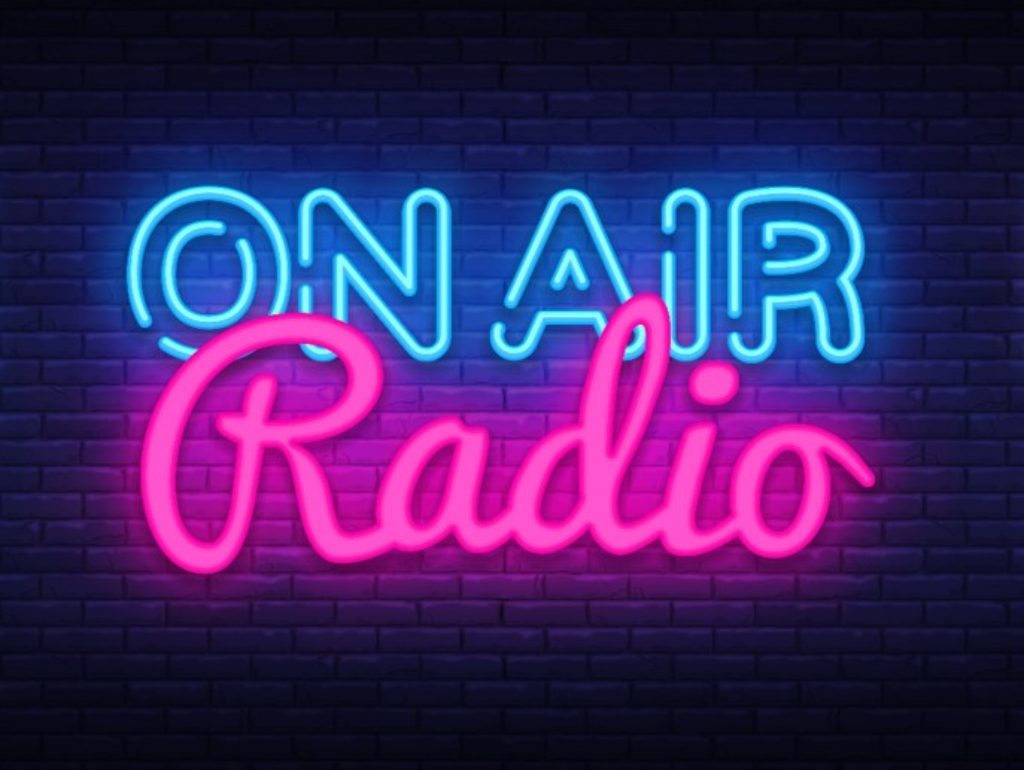 In fact, the ROI cliche might be better expressed on ROR – or Return On Reductions. How much money was truly saved this time around? And what is the collateral damage that’s been inflicted on radio as a result?
In fact, the ROI cliche might be better expressed on ROR – or Return On Reductions. How much money was truly saved this time around? And what is the collateral damage that’s been inflicted on radio as a result?
It remains to be seen whether Bob Pittman will respond to Senator Brown. And if so, how will he frame his answers to those questions?
We’re only one month into 2020, so it’s too early to know what – if any – impact the industry might experience from this event.
The effect on how stations sound, and their appearance to audiences and advertisers may not be known or felt for a long time. But there is a cost to savings and radio is more than a spreadsheet.
For insights, let’s turn to another P.T. Barnum quote:
“Nobody ever lost a dollar by underestimating the taste of the American public.”
We will see. We will see.
Need a Job?
A reminder: Jacobs Media has launched a directory of radio broadcasters who are now looking for work. This includes personnel is all departments – programming, sales, on-the-air, digital, etc. If you’ve been impacted by this latest round of cuts – or you know someone who has – please add yourself.
- What To Do If Your Radio Station Goes Through A Midlife Crisis - April 25, 2025
- A 2020 Lesson?It Could All Be Gone In A Flash - April 24, 2025
- How AI Can Give Radio Personalities More…PERSONALITY - April 23, 2025




IHeart makes up about 5% of radio stations. I asked a few non radio people in IHeart markets if they knew about the cuts and the answer was no. We have all experienced cuts and know that goes with the territory. The industry and investors have made headlines with this story. For the listeners, it is another day scanning the dial listening for their favorite program or song unless you had a connection with the talent or followed their social media page.
There are thousands of radio stations that provide local weather, lost dogs reports, high school sports, and community outreach, but yet we continue to focus on the 800 pound gorilla (IHeart) in the room. We continue to focus on their negatives and in turn give them the publicity that puts us all in a negative light.
I urge you to hit scan when driving next time and see what some great radio stations have to offer.
Damon, we’re definitely on the same page here. And that’s why it’s disheartening to see this type of publicity. Thanks for the comment.
“Nobody ever lost a dollar by underestimating the taste of the American public.” Ascertainment leads Innovation. Radio has innovated for 100 years through multiple challengers and distractions.
Without new expense, using all available resources and encouraging creative operation, 2020 will present Radio’s TAB – Turn Around Beginning. Fred, thank you for daily stimulation.
Appreciate the comment you reading the blog, Clark.
Radio is a microcosm of America, Fred.
Bernie’s right.
The 1% are taking huge bonuses, while many workers haven’t gotten a raise in 10 years(or more).
I’m sure Pittman and his cronies will see another nice bonus this year.
JC, I know your opinion is shared by many – not just in radio, but everywhere.
I’ve said for decades that if you buy or come in to manage a successful business/product….DON’T CHANGE THE FORMULA. Look at the success of “new” Coke..oops! Go into any market and see what happens when a successful business is sold and the new owner thinks they can do it better….and fails. On-air personalities are part of that success not a cause of too much expense. If an individual station or business is losing money, sure, you need changes to improve. But from my small market experience as a broadcaster, small business owner and Chamber executive, if you’re station throwing off at least an average amount of cash, don’t change the formula.
Andy Bloom once told me that budget cuts are like playing a game of Pickup Sticks. You keep removing pieces, and for a while, the structure holds. But then there’s that one stick where it all comes crashing down You never know exactly when it will happen, but the more you mess with “the formula,” the great the likelihood you’re messing with the whole thing.
Rant warning!!!!!
Fred – this is a very interesting take on what happened at iHeart. I commend and support your insight and honesty.
First, iHeart isn’t the first company to do this. I’ve heard that Entercom has been doing something similar since they acquired CBS, but incrementally and were smart enough not to issue a press release overloaded with keywords to announce it.
Some thoughts then a conclusion.
1) This probably killed any hope of the FCC allowing more ownership consolidation for the foreseeable future. If anyone has a spreadsheet covering what happens anticipating that, they might want to delete it.
2) There is no AI and there is no digital associated with radio – certainly nothing that would translate to staff cuts. Nielsen has proved that not enough are listening to online streams to matter and the only digital radio is doing is acting a sales reps for other media company’s products. Worth doing, but not a digital application for radio and not a reason to cut staff.
As for AI – I can only say that whomever wrote and approved that press release doesn’t understand what AI is. Music scheduling software has been around for over 30 years and having a few people program every station the same way to save money isn’t artificial intelligence, if anything it’s a lack of intelligence. Neither is all syndication/voice tracking all the time. Rush Limbaugh just announced that he has stage 4 cancer. I hope that he can be cured and can do his show for as long as he wants to, but who does radio have to replace him? When all of the places where air talent used to be incubated and developed have been converted to hard drives in a closet, what’s next?
Conclusion:
What this says is that iHeart has adopted a “Weekend at Bernie’s” plan for the future. It assumes that there is no hope to develop a new generation of talent, no potential return on trying to craft formats that might appeal to people under 35, nothing to be gained by attempting a real enterprise level business development strategy. Just prune and prune and prop the sucker up til everyone notices that it’s dead.
Radio has become an almost comical real life representation of a Bernie Sanders stump speech. People at the top making tens of millions while thousands get fired. Bob Pittman owns the private plane he flies on and leases it to iHeart, so he makes money on his own excess – the more excess, the more money. What a gig! I wonder if Bernie knows….
You could replace a lot of radio’s highest paid execs with AI – you don’t need tens of millions in exec comp to fire people – software can do it for a fraction of the cost of maintaining radio’s c-suites. I’d be happy to write that press release for free.
Bob, I knew you’d respond to this one while I was writing it. Your comments, as always, are provocative and worth reading. As I noted in the post, far be it from me to even suggest where required cost reductions should come from. It’s too easy to sky write from the outside. But as I pointed out, there are cuts that obviously affect the product and radio’s already tenuous relationship with an audience now tempted by more choice. There are consequences to budget cuts in any business. We’ll see how this plays out. Thanks again.
I just about stood and applauded this comment, thanks, Bob! Especially resonating with me was the line, “When all of the places where air talent used to be incubated and developed have been converted to hard drives in a closet, what’s next?” I was one of those blessed to start as many of us did back in the day–weekends/overnights/holidays…and any other shift none of the regulars wanted. And we were not only thrilled to actually get our feet in the door and be working at REAL RADIO STATIONS, we were (often unknowingly–being we thought we were already “all that”) honing those on-air skills that would serve us–and our employers and our listeners–for the next decades of our lives. It was a great time. No incubation? No development? No future.
The question that I have, is how will I ensure that my company continues to take serve local audiences? What do they want? Do they simply want “the music” or “the news”? Is that national, or local? (or both). While public radio might be tempted to sanctimoniously proclaim “that ain’t us” believe me; we’re having to answer the same questions. What value must we add to continue do serve our communities?
and please ignore my typos! 🙂
Tim, that’s the haunting question. Understanding your audience’s needs and then determining what it requires to serve them is a step that many are missing. My response would be to balance what they say they want with what we must do as broadcasters to set our brands apart and keep them sustainable in the face of competitive winds the likes of which we’ve never faced before. It’s never been more challenging, but that’s the task at hand. Thanks for the thought-provoking comment.
Here in L.A., local newspaper radio columnist Richard Wagoner opined that consolidation was responsible for this happening. It took the combined efforts of David Gleason and myself to correct all of the errors in his logic and conclusion (and Wagoner attacked me in the comments section for “defending iHeart” … which breaks a rule, in my opinion, of a journalist accepting criticism without trying to “one-up” the commenter).
He then proceeded to write a follow-up column, alluding to what he saw as unacceptable reaction to the original, and then making all kinds of “suggestions” to save local radio.
To give you an idea of how out of touch he is with the business he writes about, one of his ideas was “let the overnight board op go live.” We had to point out to him that there is no such staffer anymore.
Newspapers have always seen radio as “the enemy” that steals ad revenue from them, and as they have seen parts of their revenue dwindler and disappear in recent years (for example, does any paper still have a classified ad section?) radio becomes an easy target to write about if anything even remotely negative happens to it.
I like to point out that the “death knell” has been sounded many times before. First, television was going to kill us. Then it was 8-track tapes, then cassettes, then MP3s. Streaming is supposed to be forcing us all off the air. And yet we reinvent ourselves every time, and the vast majority of people still use radio at some point in their day. Yes, PPM showed us that the listening level wasn’t as high as we always perceived from the diary system, and ad rates got dramatically adjusted downward as a result.
In fact, that is the reason we see what’s happening now. It’s not that the major multiple-market owners overpaid for their stations (as our columnist friend asserted) but that not long after consolidation the value dropped significantly because of the rate card adjustments. Who saw that coming at the time of the acquisitions? (Rhetorical question.)
What’s happening now is part of the latest reinvention to keep radio viable in the face of yet other competing delivery method. One advantage we have this time is that we can stream just like the non-broadcasters, but to compete we have to sound a little more like they do.
In the final scheme of things, we have to do what radio has always done best … find out what the audience wants, and give it to them.
Change is hard, KM. And this latest round was “unartful,” to say the least. My point is that there’s a cost to cost reductions – in PR, performance, sales fulfillment, and other areas not visible on a spreadsheet. Thanks for saying it so well.
Fred you have made an art out of straddling the fence. These weak excuses pale in comparison to Lee Abrams more realistic point of view.
I see it from both sides, Mike. And while it may piss off people on either side of “the fence,” the fact is that disruption, expense cuts, and closures are all part of the game. Look at Macy’ss announcement.
Are executives overpaid? By who’s standards? And what makes radio CEOs any difference than leadership in other businesses?
It’s easy to throw grenades at radio’s leadership and to second guess their decisions. I’m in some of these meetings, so I see the painful decisions that must be made every day. I’m not condoning what radio is doing/has done, and I believe the post reflects that. If it’ll make you feel any better, I’m sure there are radio CEOs hacked off by this post.
The older you get, the grayer things become. I appreciate your remarks, and thank you for reading our blog and engaging.
Fred’s consultancy generates a lot of its revenue from large radio companies and in many cases, saves them from their worst instincts. He has to balance his own opinion, what’s sensible given his client base and a sincere objective of initiating conversation, not ending it.
Given those realities, I think Fred and his staff have displayed more than their share of courage in this blog. And when any reader thinks they miss the mark, they’re free to set the record straight by commenting.
Fred:
Saw this blog post in RW and just had to say “thank you”. I’ve complained about this kind of thing so much that Paul won’t publish my rantings anymore, and he probably shouldn’t.
Here in the Heart of Texas, we’re also in the heart of iHeart country, so we always feel any pain thrown off by their operation. But what is happening is that some of this talent that’s been thrown off the bus by iHeart and Cox and other corporate owners here is that they get hired in smaller markets and experience a happy ending after all. Less polution, shorter commute times…it could work. What we’re all waiting for is when these big corporations just decide that OTA is just DOA and sell off the signals. We’ll be waiting for that with open arms.
Gary, there are distinct advantages to being nimble and independent. And I’ve seen enough big fish thrive in small ponds to know you’re right on the money. Thanks for chiming in.